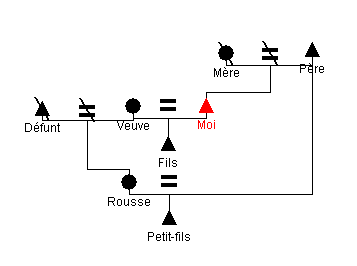(With apologies to k.d. lang. Without apologies to Gus Van Sant.)
In response to a forum discussion on teacher-rating sites, someone posted a link to this blog: Rate Your Students.
I also posted about disillusion. But the teacher in my post was meant more as a fictional character than as a personification of my own attitude.
Simply put, despite some frustrations, I’m quite satisfied with my teaching life. Not necessarily because I get positive feedback from students. But because teaching is rewarding in many ways.
Been meaning to blog about the Spirit of Inquiry conference during which I presented on learning materials. It was quite interesting a context. Like-minded teachers from all over Canada, from many different disciplines and institutional backgrounds. Everyone pretty much in agreement on the necessity to think about teaching in a diversity of ways. A lot of thoughtful discussion about rather deep issues. Almost as welcoming as the food and culture conference during which I talked about craft beer culture. So I’m thinking about teaching quite a bit.
I have been more impressed by students than by fellow teachers. Oh, some students are difficult to deal with, at times. But every single one of them has something interesting to contribute to any course they take. While I realise that this attitude sounds like the bursting blossom idealism decried by the aforementioned blog, I don’t mind saying it.
Here’s why: I don’t really feel disillusioned because I don’t recall ever being “illusioned.”
I’ve met a lot of teachers in my young life. My mother married two teachers and teachers do tend to connect with other teachers. My father (my mother’s second husband) transmitted part of his teaching philosophy to me. As [name-dropping]daddy was trained by Jean Piaget[/name-dropping], this teaching philosophy of his was quite specific. Yes, constructivism and all that. But also a certain dose of cynicism, especially toward blanket statements about student performance. This made me somewhat impervious to teaching disappointment.
In English-speaking parts of North America, there’s a lot of what I think of as “studies have shown” perspectives on learning. A good deal of blind trust for results of survey research on teaching effectiveness. These survey research projects often emphasize the most common responses to teaching. In the mind of some of these people, learning is something that the majority of students should do when a teacher is “good.” Teaching effectiveness is obvious when a majority of students have “learnt their lesson,” so to speak. As you might guess, I don’t relate very well to these views. I respect the people who hold them but I feel a disconnect between my views of teaching and their views of learning. Sure, I adapt to these views when I teach in an environment where they are held by a good number of people. But I wish to keep some distance from these views.
The part I don’t like is when we (as teachers) are told to use very specific methods in order to ensure student learning. I really don’t have a problem with tips and tricks for teaching. They’re very inspiring and can really enhance teaching experience. What I’m less enthusiastic about is the type of “you should teach in blocks of 20 minutes at a time because studies have shown that students tend to have a difficult time concentrating for more than 20 minutes at a time.” I understand the effects of the “change-up” (switching from one task to another during a class period) and I have started to implement a teaching strategy which does involve a variety of interaction modes during a given class period. Yet the notion that “The One Way to Teach” implies piecemeal development is quite foreign to me.
“Where I come from,” we could have seminars lasting for seven straight hours and everyone’s attention seemed quite focused. Oh, sure, I’m pretty sure many people were daydreaming when others were talking. But that daydreaming was quite relevant to the discussion. Kind of like the “drift-off moment” in a successful sales pitch. The whole “what you say makes me think of,” with surprising and satisfying results. For instance, it’s easy to imagine the response “your talking about aesthetics makes me think of baking.” Sounds absurd at first, but it can be very useful. We’re merging horizons, pushing inter-subjectivity. We’re not making sure everyone remembers everything that has been said. There are recording devices for that.
Am I ranting? Maybe. But not about people themselves. If I’m venting frustrations, it’s because I enjoy what I do in the classroom and want to go several steps forward.
I do dream about teaching fairly regularly. In fact, when I woke up this morning, I was thinking about my own concept of critical thinking as it relates to my teaching philosophy. I would assume that it means that I was dreaming about teaching, probably because of the conference. Unfortunately for those who really think about learning and teaching, many people merely use “critical thinking” or “skill transfer” as buzzphrases to convince administrators that what they do is trendy. Fortunately, most of the conference attendees were using such concepts as “social constructivism” and “inquiry-based learning” in non-buzzphrase ways.
Still lots to say about teaching. But true to my RERO resolution, I will leave it at that, for now.
